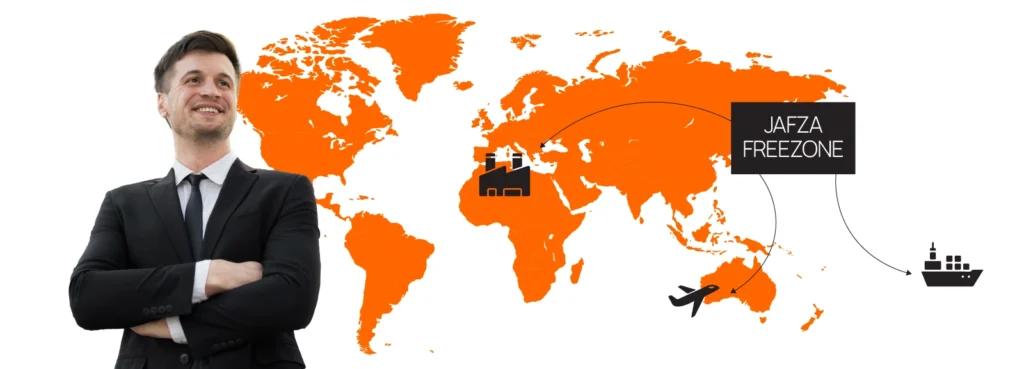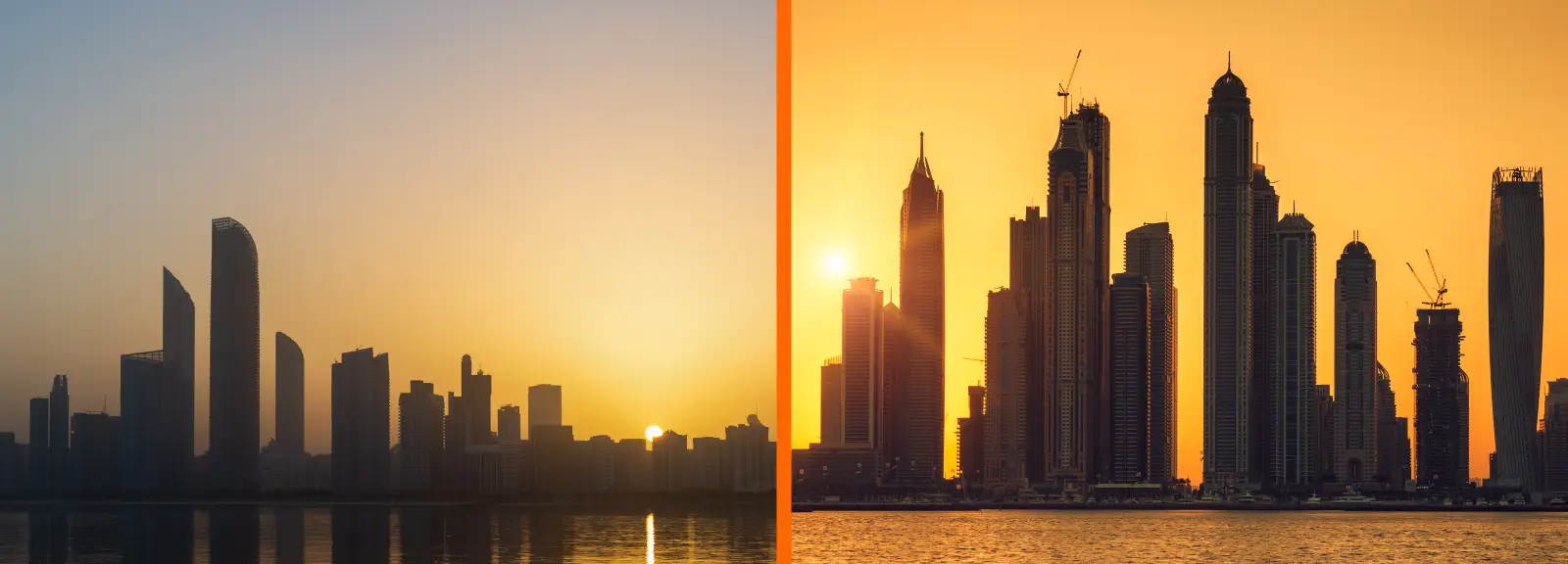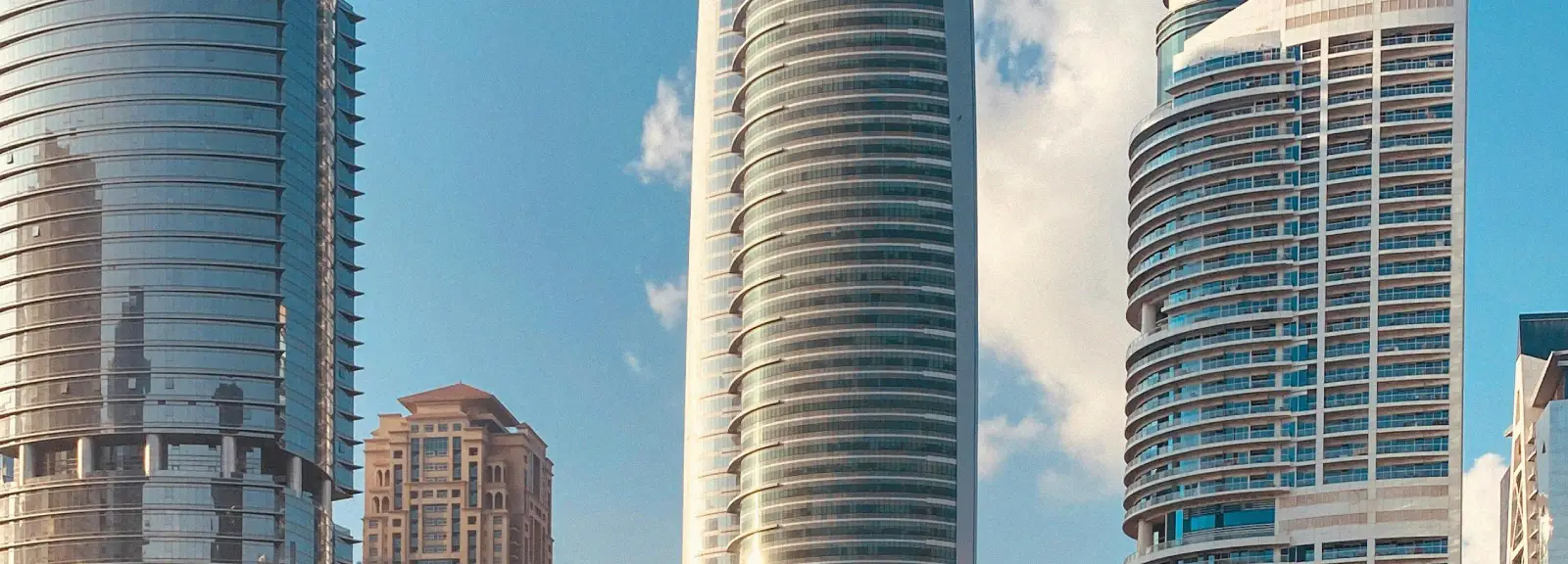If you're a business looking to grow in the UAE, Gulf markets, or beyond, your setup strategy matters just as much as your product or service. Cost-efficiency and speed are no longer optional. In 2025, companies are under pressure to reduce overheads, optimize supply chains, and scale faster without being buried in compliance issues or unnecessary expenses.
The JAFZA freezone, located in the heart of Dubai’s logistics and trade ecosystem, gives businesses a powerful launchpad. With access to the Jebel Ali Port, direct trade links across the globe, and one of the most business-friendly regulatory environments in the region, it’s no surprise that over 9,500 companies operate out of the JAFZA freezone today.
In this blog, we’ll explain exactly why the JAFZA freezone has become a preferred destination for businesses in 2025. We’ll walk you through the strategic importance of its location, the structural advantages it offers, and five specific ways the JAFZA freezone can help you reduce costs and grow your company faster.
Table of Contents
The Strategic Case for Setting Up in JAFZA
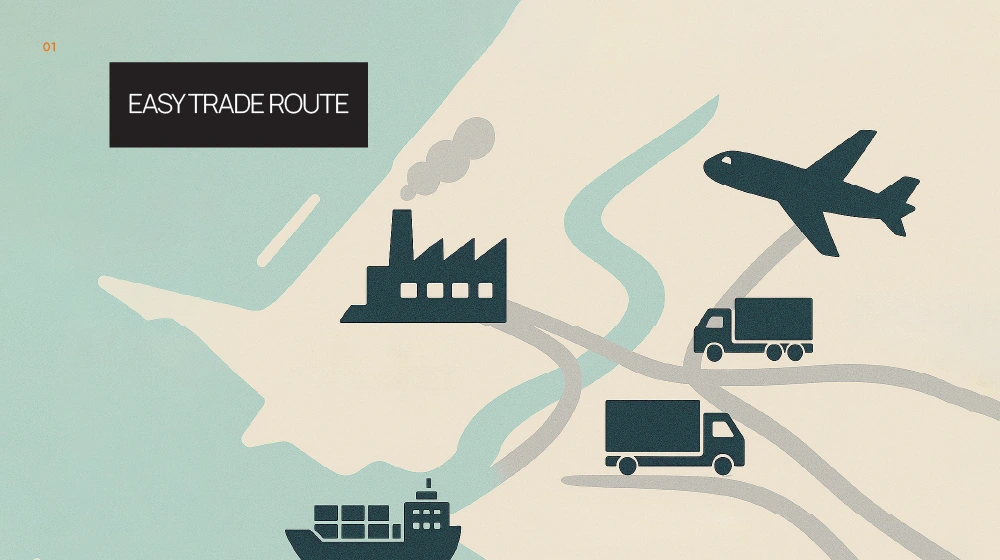
When you’re expanding into the Middle East or looking to optimize operations within the UAE, jurisdiction matters more than ever in 2025. Businesses often face a choice between setting up in a mainland jurisdiction or choosing a free zone. While mainland setups allow companies to operate across the UAE without restriction, they typically come with higher regulatory overhead, mandatory local partnership requirements (in some sectors), and more complex tax exposure. In contrast, free zones like the JAFZA freezone offer streamlined processes, lower operational costs, and clear international trade pathways especially for companies focused on global markets. Understanding the nuances of a Dubai free zone vs mainland setup can be crucial to making the right decision.
The JAFZA freezone, situated within the Jebel Ali Free Zone, holds a unique position in the UAE’s trade and logistics infrastructure. It’s not just the largest free zone in the region, it is directly integrated with Jebel Ali Port, which is the largest deep-sea port in the Middle East and consistently ranked among the world’s top 10 busiest ports. This gives JAFZA freezone companies a direct link to over 150 shipping lines and more than 80 weekly services that connect to 180 ports worldwide. That level of accessibility simply doesn’t exist elsewhere in the region.
Here’s why location gives JAFZA freezone a serious edge:
- Proximity to Jebel Ali Port, the busiest port in the Middle East
- Integrated access to Al Maktoum International Airport, just 20 minutes away
- Connections to global trade lanes, linking Africa, Europe, Asia, and the GCC
- On-site customs and logistics facilities, reducing shipment delays and bottlenecks
Whether you’re operating an e-commerce brand, a global logistics company, or a manufacturer moving raw materials and finished goods, the JAFZA Jebel Ali freezone gives you a launchpad that’s already embedded into the supply chain.
But geography is just the beginning. The JAFZA freezone is also structured to minimize bureaucracy and maximize business momentum. Setting up within JAFZA doesn’t require a local sponsor, and as of 2025, full foreign ownership is still allowed for all legal structures within the zone. You also get access to a one-stop-shop for visas, licensing, customs, and office space, all managed by JAFZA’s central authority. These benefits make it far easier for international founders, small and medium enterprises, and multinational corporations to scale with confidence.
If you’re unsure how legal structure affects control and taxation, our guide on legal structure of a company can help you choose wisely.
Beyond location, here’s what makes the JAFZA freezone operationally strategic:
- 100% foreign ownership allowed for all types of JAFZA freezone companies
- Centralized government services (visa, licensing, immigration, etc.)
- No paid-up capital requirement for most company types
- Fast-tracked registration processes with digital onboarding options
- Pro-business regulatory framework, built for foreign investors
Another often overlooked advantage is customs clearance. Since the JAFZA freezone company operates inside a bonded area, you can import goods, store them, and re-export without triggering VAT or customs duties. This is a critical point for businesses working on tight margins or moving large volumes of inventory. For those focused on re-exporting, the Jebel Ali Free Zone acts as a cost-saving corridor into surrounding markets.
The customs and trade advantages include:
- 100% exemption on import and re-export duties within the free zone
- No VAT on goods stored or re-exported from JAFZA warehouses
- Simplified customs processing, directly managed inside the zone
- Direct access to bonded warehouses and temperature-controlled facilities
This entire ecosystem is built around real-world logistics and commercial scalability. JAFZA isn’t just a place to register a company, it’s where operations are optimized from day one. Whether you’re building your regional headquarters or launching a trading company, your infrastructure inside the JAFZA freezone is already aligned with global movement, operational flexibility, and capital efficiency.
What Makes the JAFZA Freezone Unique?
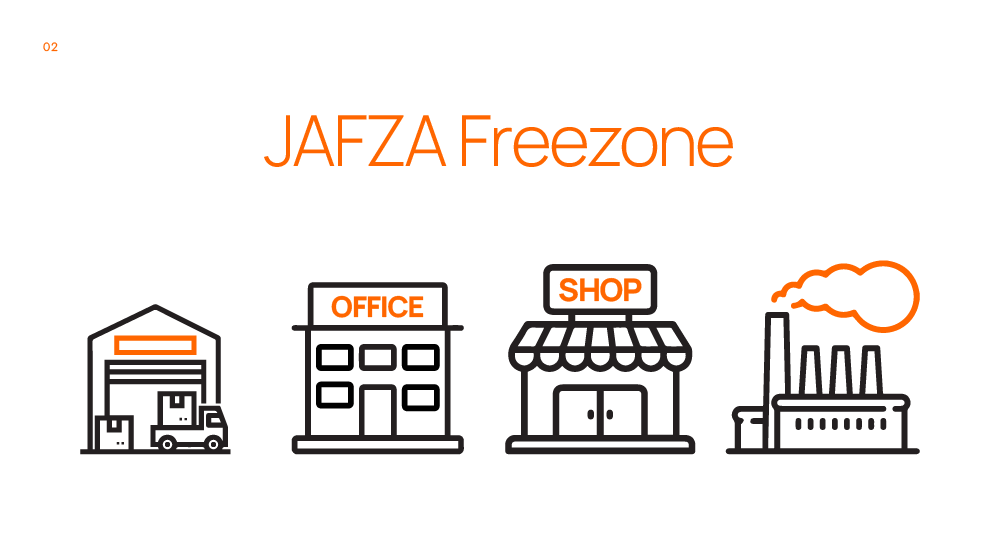
The JAFZA freezone stands out for several reasons, and in 2025, it’s more relevant than ever for businesses looking to scale efficiently, access international markets, and reduce operational risks. Unlike many free zones that serve specific sectors or operate with limited capacity, the JAFZA freezone supports a wide range of industries including manufacturing, logistics, trading, e-commerce, automotive, healthcare, and high-growth tech.
It’s not just one of the oldest free zones in the UAE, it’s also one of the most advanced and globally integrated. Established in 1985 and located inside the Jebel Ali Free Zone, the JAFZA freezone has evolved into a strategic gateway for international trade. Today, it connects over 3.5 billion consumers across the Middle East, Africa, Europe, and Asia. Over 9,500 companies operate within the JAFZA Jebel Ali freezone, including more than 100 Fortune 500 companies.
1. Multi-industry Support Without Sector Limits
Unlike zones that only support media, finance, or tech, the JAFZA freezone welcomes virtually all industries. You can set up a general trading business, an industrial manufacturing facility, a distribution hub, or even a regional e-commerce warehouse all under one jurisdiction. This multi-sector structure helps attract ecosystem synergies and strategic partnerships across industries.
2. Access to Unmatched Logistics Infrastructure
Being embedded within the Jebel Ali Free Zone, the JAFZA freezone offers seamless access to Jebel Ali Port, the largest deep-sea port in the Middle East. It handles more than 13 million TEUs annually and serves over 180 ports globally. That alone puts JAFZA freezone companies in a strong position to cut transport time and cost. Add proximity to Al Maktoum International Airport, the future largest airport in the world and you get dual-mode connectivity that’s rare anywhere else.
3. Built for Scalability from Day One
From plug-and-play office space to custom-built land plots, the JAFZA freezone offers modular, scalable infrastructure. Whether you need a 20-foot office, a 20,000-square-meter warehouse, or an entire logistics compound, space is available and ready to use. Many JAFZA freezone companies start small and scale into larger footprints over time without relocating or reapplying for new permits.
4. End-to-End Customs and Trade Facilitation
Thanks to its bonded zone status, the JAFZA freezone allows for duty-free import, storage, assembly, and re-export of goods. Onsite customs clearance and smart trade systems ensure faster release times and less red tape. That’s why the JAFZA Jebel Ali freezone is often the preferred choice for re-exporters targeting GCC and African markets.
5. Digital-First Business Environment
The JAFZA freezone was one of the first zones in the UAE to implement a fully digital portal for company registration, licensing, visa processing, and lease agreements. As of 2025, most administrative actions whether it’s renewing your JAFZA trade license or applying for employee visas can be done entirely online. This removes the dependency on middlemen and helps reduce administrative overhead.
6. Trusted by Global Brands, Built for Regional Startups
The zone hosts over 9,500 active companies, ranging from multinationals like Unilever, Siemens, and Nestlé, to fast-growing regional exporters and digital startups. Whether you’re a large industrial player or a small trading outfit, the JAFZA freezone offers the credibility of a Tier-1 zone while remaining flexible enough for lean teams and new entrants.
Different business models require different licenses. Here’s a clear guide to understanding the different types of business licenses in Dubai.
7. Investor Confidence Through Legal Transparency
The JAFZA freezone operates under a regulatory framework developed in line with international business law. Companies are guaranteed 100% foreign ownership, enjoy full repatriation of capital and profits, and are protected by a clear dispute resolution mechanism. This has made the JAFZA freezone company structure especially attractive to Western and Asian investors who expect high governance standards.
8. Seamless Integration with the UAE Economy
Unlike some free zones that operate in isolation, the JAFZA freezone is closely integrated with the rest of the UAE’s economy. It has agreements in place with key UAE government entities like Dubai Customs, the Ministry of Human Resources & Emiratisation, and the UAE Central Bank. That makes banking, staffing, and logistics much more straightforward for any JAFZA freezone company operating in or out of the UAE.
With its combination of scale, connectivity, infrastructure, and regulatory clarity, the JAFZA freezone is a launchpad built to support cross-border operations and long-term expansion.
For first-time market entrants, it removes common obstacles like partner requirements, high overhead, or complicated customs procedures. For seasoned businesses, the JAFZA Jebel Ali freezone delivers predictable costs, logistical agility, and trade advantages that are hard to match elsewhere in the region.
5 Ways JAFZA Freezone Helps You Lower Costs and Grow Faster

The JAFZA freezone continues to be one of the most attractive business jurisdictions in 2025 for companies aiming to cut costs and accelerate growth. Here are the five most significant advantages of establishing your company in the JAFZA freezone, each offering tangible benefits for your bottom line and operational efficiency.
Way #1: Keep 100% Ownership and Pay 0% Corporate Tax
One of the most compelling reasons to set up in the JAFZA freezone is the ability to maintain 100% foreign ownership without the need for a local partner or sponsor. This means you retain complete control over your business decisions, profits, and strategic direction.
- Full repatriation of capital and profits is allowed, so your earnings can be transferred internationally without restrictions.
- The JAFZA freezone provides 0% corporate tax on qualifying income for up to 50 years, a critical advantage as the UAE has rolled out corporate tax frameworks elsewhere in the country.
- This tax exemption applies to income generated within the JAFZA freezone under clear regulatory guidelines, shielding your business from the standard 9% corporate tax applied outside free zones. To stay ahead of new rules, here’s how to handle corporate tax registration in Dubai.
- In practical terms, for a company with AED 1 million net income, this can mean saving approximately AED 90,000 annually, freeing capital for reinvestment in areas like hiring, technology, or inventory.
These incentives make the JAFZA freezone one of the most tax-efficient places to operate in the Gulf, supporting both startups and established multinationals seeking the advantages of lower taxes in UAE.
Way #2: Save Big with Import and Export Duty Exemptions in JAFZA Freezone
Trade-related duties can add hidden costs to your supply chain, particularly if your business involves large volumes or high-value shipments. One of the strongest cost advantages of the JAFZA freezone is its full exemption from customs duties on imports and re-exports.
- Raw materials, components, or finished goods can be imported into the JAFZA freezone, stored, processed, or assembled, and then re-exported without incurring customs duties.
- This exemption applies to equipment and machinery imported for your operations, reducing setup costs from day one.
- The ability to operate within a bonded zone means you avoid paying VAT on goods brought into warehouses for re-export.
- For businesses in electronics, automotive parts, pharmaceuticals, or consumer goods, this leads to significantly lower landed costs and improved pricing competitiveness.
This duty exemption makes the JAFZA freezone a preferred hub for trading companies, distributors, and manufacturers targeting GCC, African, and Asian markets.
Way #3: Tap Into World-Class Logistics Right Next to Jebel Ali Port
The JAFZA freezone’s location adjacent to Jebel Ali Port is one of its most valuable assets. The port is the largest in the Middle East and ranks as the 9th busiest container port globally, handling over 13 million TEUs annually.
- Being right next to the Jebel Ali Free Zone creates a logistics ecosystem where goods can flow seamlessly from ship to warehouse to truck or plane.
- Proximity to Al Maktoum International Airport offers quick air freight options, facilitating faster delivery times and opening up broader international markets.
- This closeness reduces inland transportation costs and transit times, helping businesses optimize inventory management and reduce working capital tied up in transit.
- It gives JAFZA freezone companies priority access to customs clearance and port services, speeding up export-import cycles.
Manufacturers, e-commerce businesses, and trading firms all benefit from this connectivity, which helps keep supply chains lean and responsive.
Way #4: Set Up Faster with JAFZA’s One-Stop Business Services
Starting a business anywhere can involve complex and time-consuming processes. The JAFZA freezone simplifies freezone company setup in UAE with its one-stop-shop model, allowing entrepreneurs to get up and running much faster.
- Business licenses, entrepreneur visa applications, customs registration, and facility leasing are all handled through a centralized system.
- The JAFZA freezone offers a fully digital portal to submit, track, and manage applications, minimizing physical visits and paperwork.
- Fast-track license processing options are available, especially for SMEs and tech-focused companies that want to hit the ground running.
- The streamlined setup reduces delays that can stall revenue generation, hiring, and operational launch.
- This system lowers administrative overhead and removes bureaucratic uncertainty, critical for businesses looking to expand swiftly.
If you’re just getting started, this step-by-step guide on how to start a business in Dubai in 2025 will walk you through every stage.
Way #5: Scale Smarter with Flexible Office, Warehouse, and Land Solutions
Business needs change as companies grow. The JAFZA freezone offers a variety of facility options to match different operational scales, allowing you to pay only for what you need and expand smoothly as demand increases.
- Fully serviced offices in modern business towers provide professional workspaces without upfront capital expenditure.
- Warehouses range from small prebuilt units with climate control to large logistics hubs suitable for manufacturers or e-commerce fulfillment centers.
- There are plots of land available for companies needing to build customized industrial facilities or distribution centers.
- Retail and showroom spaces cater to businesses with customer-facing operations inside the free zone.
- Flexible lease terms mean you avoid costly long-term commitments, allowing you to adapt space based on seasonal demand or market shifts.
If you want to know what to budget for facility setup, here’s a breakdown of Dubai license cost for investors.
Why JAFZA is the Right Move Now
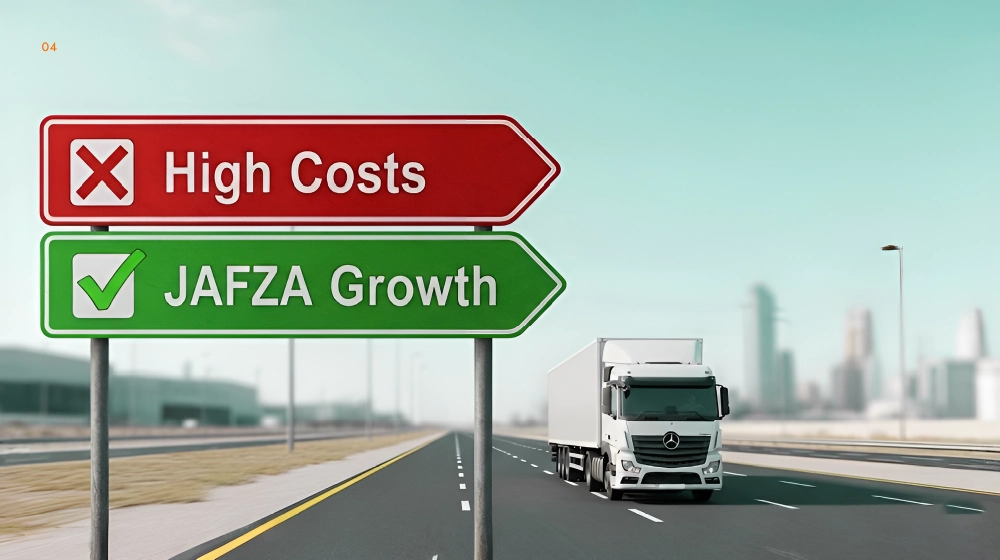
In 2025, business isn’t just about scale. It’s about speed, efficiency, and clarity. The JAFZA freezone gives you a setup that minimizes cost while unlocking global potential. Whether you’re expanding into the Gulf, consolidating your supply chain, or looking for a more tax-efficient business base, this is one of the smartest places to start.
At GCG Structuring, we’ve helped dozens of businesses set up in the JAFZA freezone, structure their entities correctly, and stay compliant while scaling fast. We walk you through licensing, facility selection, document processing, and entity planning so you don’t make expensive mistakes—offering complete support for company formation in Dubai.
If you’re serious about growing your business in the UAE or using it as a hub for international operations, now is the time to explore JAFZA freezone.
FAQ
1. 0 How long does it take to set up a company in JAFZA?
Typically, company setup in JAFZA takes between 5 to 10 working days, depending on your business activity and documents.
2. 0 Do I need to be physically present in the UAE to register my company?
No, you can set up your company remotely through authorized agents or consultants. However, a visit may be required for bank account opening or visa stamping.
3. 0 Can I open a corporate bank account easily after registration?
Yes, once your company is registered, you can apply for a corporate bank account. The approval depends on your business type, documentation, and compliance checks by the bank.
4. 0 What types of business licenses are available in JAFZA?
JAFZA offers several license types, including Trading, Industrial, Service, and E-commerce licenses, depending on your business activities.
